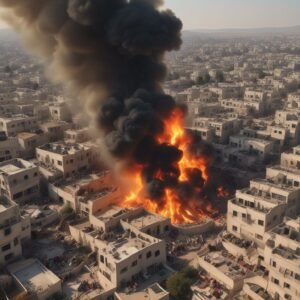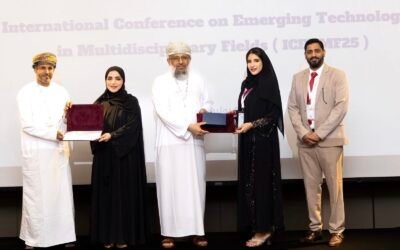
Much harder than being born in a dying homeland
Ninety, ninety-one, ninety-two… One hundred. I counted many numbers during my daily escape, Hilda, but it didn’t work, I came home exhausted from counting, walking, and crying. I was repeating the numbers in order and attentively “so as not to distract my thoughts” as we agreed. However, my thoughts exploded from time to time like a time bomb, and there was no ceiling to shelter from so that the inertia of the numbers did not carry some of its fragments from me.
Numbers are no longer static entities as you told me. New meanings have been added to it in the last ten months. You know, One shroud in Gaza carried the bodies of three martyrs at once (a mother, a father, and their child), and only half a plastic bag piled up the body of a woman in her mid-thirties, and a grave that housed three generations of one family (grandfather, son, and grandson).
Numbers are no longer an escape from thinking as you told me. Or maybe my numbers don’t look like yours. Perhaps I don’t resemble any of your patients whose “conscious walking” can stop their minds from grinding down grief. Or I no longer look like myself.
I know that I came to you leaning on my sadness from the beginning and that my sadness is similar to the sadness of other refugees who arrive monthly from everywhere in your country. You said that we hide our problems among the clothes and flee from them, and I wondered how you can help those who came to you full-fat worries, alone, lost, and distracted, and he did not dare to leave his problems behind his back before he crossed the seas fleeing from them.
The malice of your question was not as obvious as today, Hilda. I was thinking of it as I cried on the way home with the image of a child mashed by tons of stones and his rounded head became like an emptied ball of air. These are my biggest problems, my dear. I come from an occupied homeland whose occupiers want to erase its inhabitants from the land. It’s that simple, and even if you become an angel of passion, to a certain extent that you are willing to forgive your murderers, They will still go on to exterminate you in all the brutal ways recorded in the psychology books that you studied and did not study. We are the vulnerable victims, Hilda, who come to you in full fat, We are the murdered, my dear, who plant their problems in our flesh, so we think and you think that it is our choice.
We are the bereaved and the vulnerable and helpless, thus all the techniques of psychology do not succeed in carrying or dissolving our pain.
I don’t know if my rejection of psychotherapy theories and its bright suns and blue skies bothers you, but I’m sorry, my problem is not solved by conscious walking, counting birds, and reading shop signs. A friend who shared my “expatriate grief” told me that each of us has our share of pain, we inherit it as we inherit the earth, and the space in the heart increases as family members are at risk of dying in Gaza.
It is not enough to leave “voluntarily or forced” to take away the responsibility of loving the country, and if our attachment to Gaza is not a duty that we abide by and enter paradise, for example, there is a hidden cord between us that provides us with blood, and every contraction of pain in its bowels explicitly means that we are alive. Gaza is giving birth to us, Hilda. She plants us in her and we germinate carrying all her genetic traits – her oppression, her anger, and her sadness – do you know what it means to be the daughter of a dying homeland?
Note: Hilda, a therapist I turned to after I arrived in Belgium three and a half years ago. In our last conversation, she said: “You just want someone to hear you, words that are not said are as heavy as stones.”
Palestinian Writer and Journalist from Gaza living in Belgium.
I'm Hassan — a multidisciplinary storyteller at the intersection of culture, creativity, and strategy. As a content creator and website manager at Omanspire, I bring Omani stories to life through thoughtful writing, SEO-driven publishing, and engaging digital experiences. With a passion for history, branding, and visual design, I craft content that bridges tradition and innovation — always with purpose, and always with people in mind.



